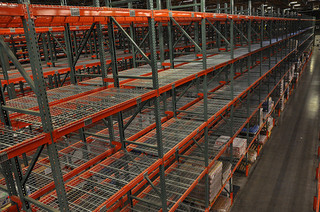Resilience Is Key to Global Supply Chain Success

Supply chain disruptions are inevitable. What’s important is how a company faces these obstacles and what actions they take to overcome them. “Building Resilience in Supply Chains” was the focus of this year’s World Economic Forum (WEF) meeting on January 24th. The report addresses common uncontrollable risks of global supply chains and outlines ways to make the supply chain more resilient.
This article is for Premium Members only. Please login below to read the rest of this article.
Not a Premium Member yet? Become one today.
[login_form redirect=’https://www.procurementbulletin.com/resilience-is-key-to-global-supply-chain-success’]
[show_to accesslevel=’Premium Members’]
Managing Disruptions
“The world’s supply chain forms the backbone of our global economy, security and health, and the risks it faces are many,” says Stanley M. Bergman, CEO of leading medical supplier Henry Schein, Inc. and WEF panel member. According to Bergman, the “five “P’s” are to blame for most of these risks – “powerful weather, pandemic, political instability, port closures, and primary sourcing.” Any one of these situations can affect millions of people on a global level.
From natural disasters like Hurricane Sandy to surprises in demand levels as seen with the flu vaccine, supply chain disruption risks are abundant and prevention is not an option. “We cannot plan for precisely how or when, but we can plan for the fact that disruptions will strike,” says Bergman. “We must create supply chain resilience to enable us to respond.”
Creating Supply Chain Resilience
A job like managing the global supply chain isn’t something a single sector or agency can handle alone. The WEF report supports this belief, encouraging consumers, governments, global organizations, and businesses to work together in supply chain protection. Strategic partnerships, along with adaptable policies and effective data sharing platforms, are the foundation required for a “global resilience framework”.
The global supply chain is everyone’s responsibility. Collaboration and learning from past experiences are the best ways to create a resilient supply chain at the organizational level as well as globally. According to report findings, partnerships, communication, coordination, and proactive planning are essential. When society acts together, the next crisis will never be “nearly as bad as it could have been.” [/show_to]




